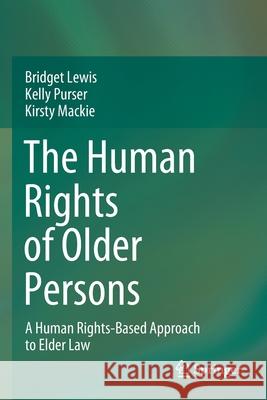The Human Rights of Older Persons: A Human Rights-Based Approach to Elder Law » książka
topmenu
The Human Rights of Older Persons: A Human Rights-Based Approach to Elder Law
ISBN-13: 9789811567377 / Angielski / Miękka / 2021 / 338 str.
The Human Rights of Older Persons: A Human Rights-Based Approach to Elder Law
ISBN-13: 9789811567377 / Angielski / Miękka / 2021 / 338 str.
cena 563,56
(netto: 536,72 VAT: 5%)
Najniższa cena z 30 dni: 539,74
(netto: 536,72 VAT: 5%)
Najniższa cena z 30 dni: 539,74
Termin realizacji zamówienia:
ok. 16-18 dni roboczych.
ok. 16-18 dni roboczych.
Darmowa dostawa!
Kategorie:
Kategorie BISAC:
Wydawca:
Springer
Język:
Angielski
ISBN-13:
9789811567377
Rok wydania:
2021
Wydanie:
2020
Ilość stron:
338
Waga:
0.50 kg
Wymiary:
23.39 x 15.6 x 1.88
Oprawa:
Miękka
Wolumenów:
01
Dodatkowe informacje:
Wydanie ilustrowane











